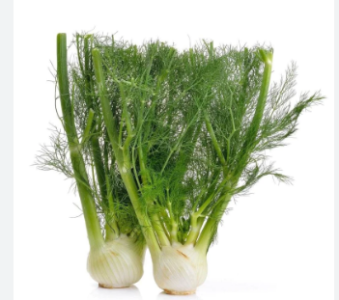Fennel seeds are often used in cooking, but they also have numerous health benefits. Fennel seeds have been used for medicinal purposes for thousands of years and have been known to improve digestion, boost the immune system, and provide relief from menstrual cramps. Fennel seeds are packed with nutrients, including fiber, vitamins, and minerals, making them a valuable addition to any diet. In this article, we will explore the health benefits of fennel seeds, their nutrient profile, and potential side effects.
What is Fennel and What are Fennel Seeds?
Fennel is a flowering plant that is native to the Mediterranean. It is a member of the carrot family and is related to celery and parsley. Fennel is a highly aromatic herb that has a licorice-like flavor. Fennel seeds are the dried fruit of the fennel plant and are commonly used in cooking and traditional medicine. Fennel seeds have a sweet, slightly spicy taste and can be eaten raw or roasted.
Quick Read: Health benefits of Edamame beans
Nutrient Profile of Fennel Seeds
Fennel seeds are a rich source of nutrients and are packed with fiber, vitamins, and minerals. One teaspoon of fennel seeds contains:
- 7 calories
- 1 gram of fiber
- 0.3 grams of protein
- 0.5 grams of fat
- 1% of the recommended daily intake of calcium, iron, and magnesium
- 3% of the recommended daily intake of vitamin C
Health Benefits
So, does fennel seeds have any health benefits? Yes, and there are quite a number of them. Here are some of the common health benefits derived from eating fennel seeds and its related products:
a). Aids in Digestion
Fennel seeds are a natural digestive aid and can help alleviate digestive issues such as bloating, gas, and constipation. Fennel seeds contain compounds that help relax the smooth muscles in the digestive tract, allowing food to move more easily through the digestive system.
Quick Read: Health Benefits of CBD oil
b). Anti-inflammatory properties
Fennel seeds have anti-inflammatory properties that can help reduce inflammation in the body. This makes them beneficial for conditions such as arthritis, asthma, and other inflammatory disorders.
c). Immune Booster
Fennel seeds are packed with antioxidants, which help to protect the body from free radical damage. Antioxidants can help boost the immune system and reduce the risk of chronic diseases such as cancer, heart disease, and Alzheimer’s disease.
Quick Read: Ketogenic Diet Comprehensive Guide
d). Relieves menstrual cramps
Fennel seeds have been shown to be effective in relieving menstrual cramps. The compounds in fennel seeds help to relax the muscles in the uterus, providing relief from cramps and other menstrual symptoms.
e). Improves heart (cardiovascular) health
Fennel seeds contain fiber, which can help to reduce cholesterol levels and improve heart health. The antioxidants in fennel seeds can also help to reduce inflammation, which is a risk factor for heart disease.
f). Improves oral health
Fennel seeds have a natural breath freshening effect and can help to reduce bad breath. This is due to the antibacterial properties of fennel seeds, which help to kill the bacteria that cause bad breath.
Quick Read: Health Benefits of Dragon Fruit
g). Blood pressure regulation
Fennel seeds contain potassium, which is an important mineral for regulating blood pressure. Potassium helps to counteract the effects of sodium in the body, which can lead to high blood pressure.
h). Improves skin health
Fennel seeds are packed with antioxidants, which help to protect the skin from free radical damage. This can help to reduce the signs of aging and improve skin health.
i). Improved milk production (lactating mothers)
Fennel seeds are a traditional remedy for increasing milk production in nursing mothers. The compounds in fennel seeds can help to stimulate the production of breast milk.
Quick Read: Mediterranean vs Vegan Diet
j). Natural weight loss aid
Fennel seeds are low in calories and high in fiber, which can help to promote a feeling of fullness and aid in weight loss. The fiber in fennel seeds can also help to regulate blood sugar levels, which is important for maintaining a healthy weight.
Potential side effects of Fennel seeds
While fennel seeds are generally safe, there are a few potential side effects to be aware of. Fennel seeds may cause allergic reactions in some people, particularly those who are allergic to plants in the carrot family. Fennel seeds may also interact with certain medications, including blood-thinning medications and medications for high blood pressure. If you are taking any medications, it is important to consult with your healthcare provider before adding fennel seeds to your diet.
Precautions!
If you are pregnant or nursing, it is important to talk to your healthcare provider before consuming fennel seeds. Fennel seeds may stimulate the production of breast milk and can be beneficial for nursing mothers, but they may also have an estrogen-like effect on the body, which could be problematic during pregnancy.
Your Examples of Fennel Seed Recipes
i. Fennel Seed Tea
Ingredients:
- 1 teaspoon fennel seeds
- 1 cup water
Instructions:
- Bring 1 cup of water to a boil in a small pot.
- Add 1 teaspoon of fennel seeds to the water.
- Reduce heat and simmer for 5-10 minutes.s
- Strain the tea into a cup and enjoy.
ii. Roasted Fennel Seed Potatoes
Ingredients:
- 1 pound potatoes, cut into small cubes
- 1 tablespoon olive oil
- 1 teaspoon fennel seeds
- Salt and pepper, to taste
Instructions:
- Preheat the oven to 425 degrees F
- In a bowl, toss the potatoes with olive oil, fennel seeds, salt, and pepper.
- Spread the potatoes in a single layer on a baking sheet.
- Roast the potatoes for 25-30 minutes, or until they are golden brown and crispy.
Conclusion
Fennel seeds are a versatile and nutritious addition to any diet. They are packed with fiber, vitamins, and minerals, and have numerous health benefits, including aiding digestion, reducing inflammation, and boosting the immune system. Fennel seeds are generally safe for most people to consume, but it is important to be aware of potential side effects and to consult with a healthcare provider before adding fennel seeds to your diet, particularly if you are pregnant, nursing, or taking medications. Incorporating fennel seeds into your diet can be as simple as adding them to tea or using them as a seasoning in your favorite recipes.



























